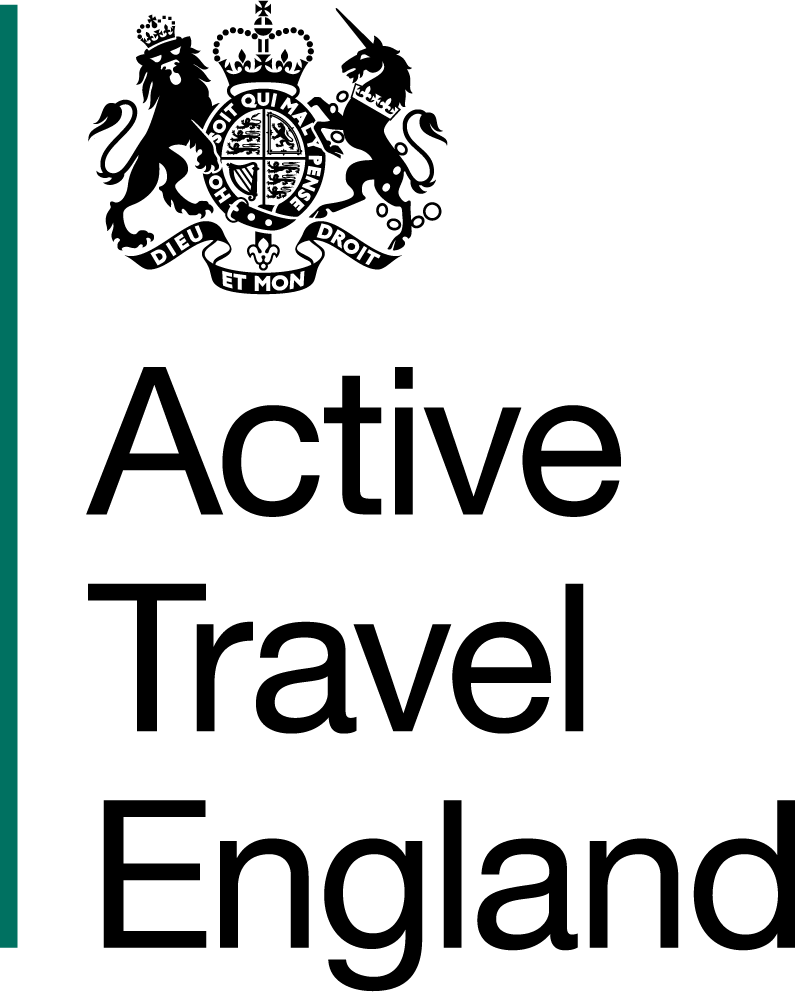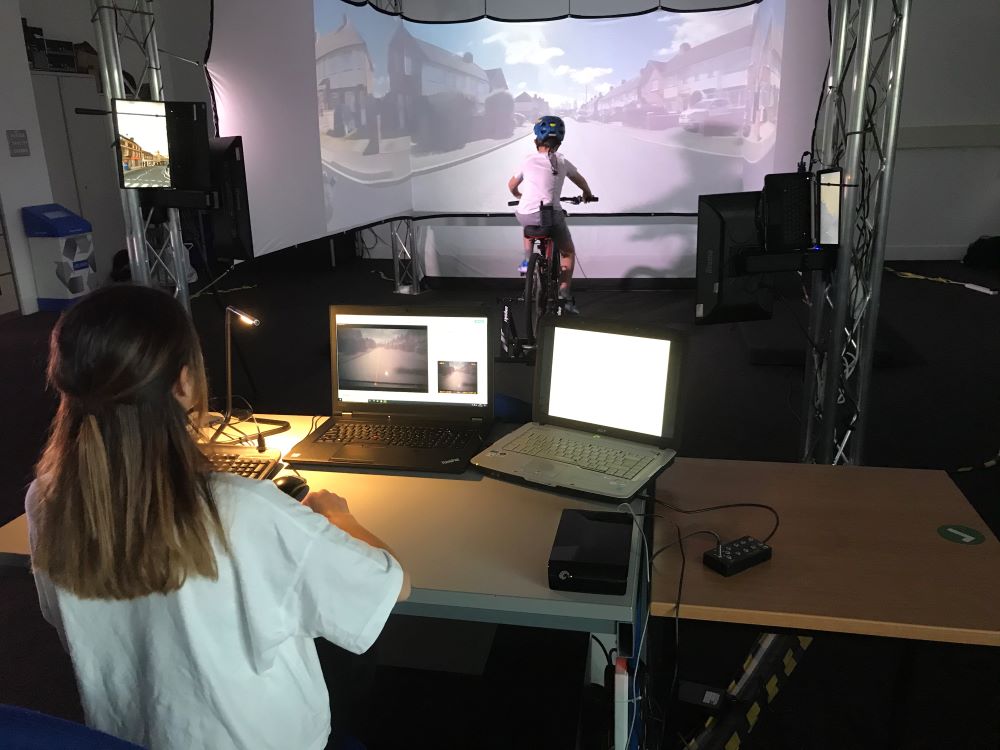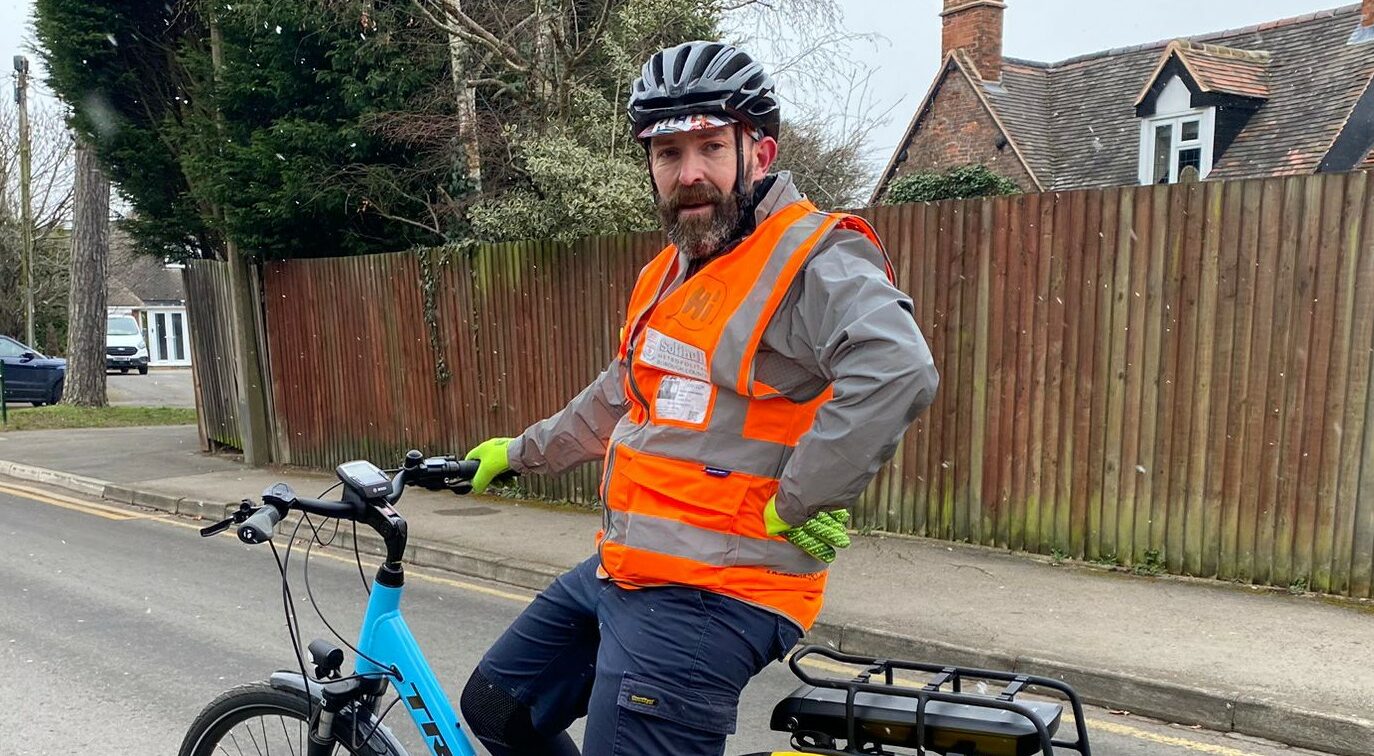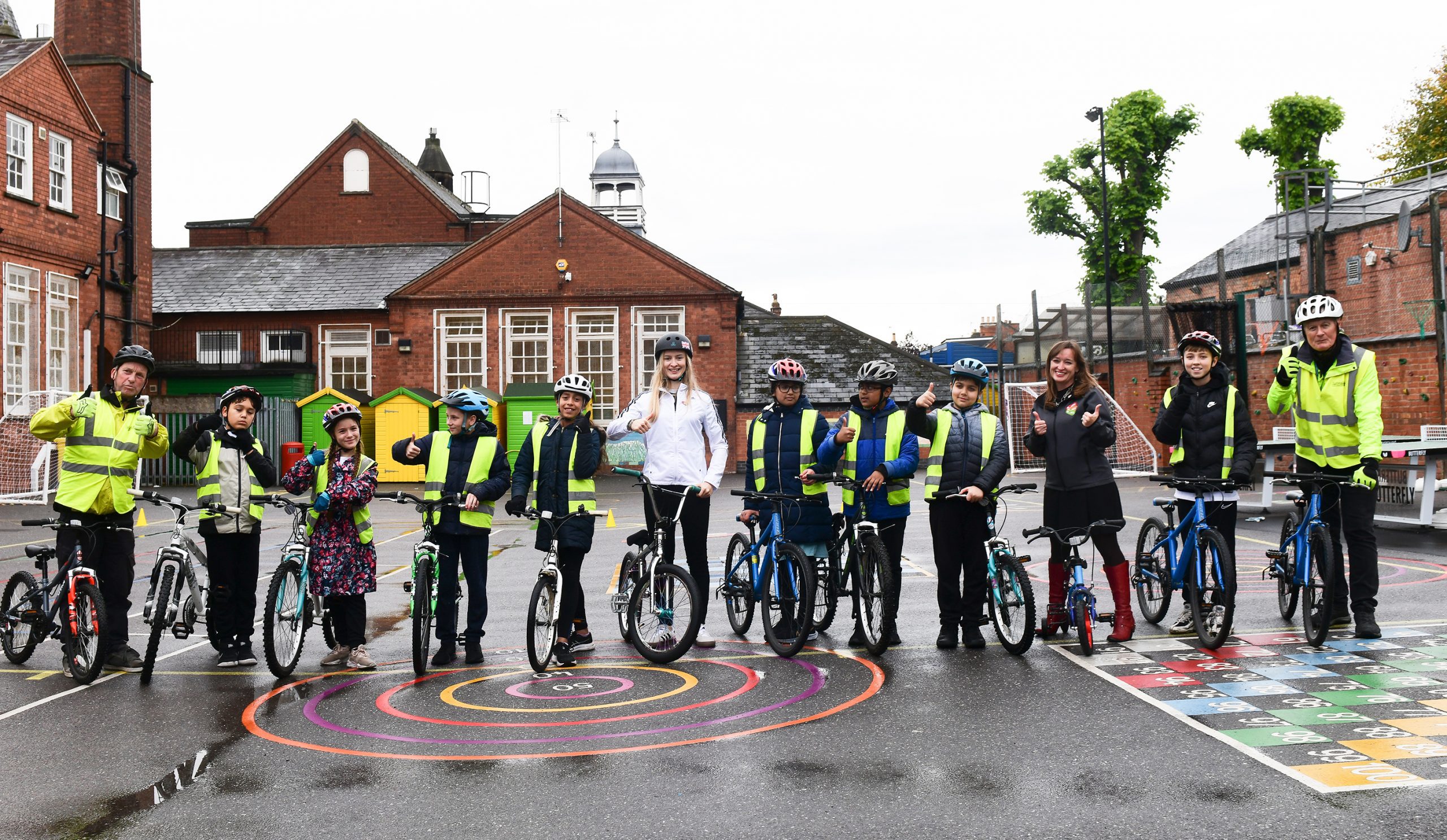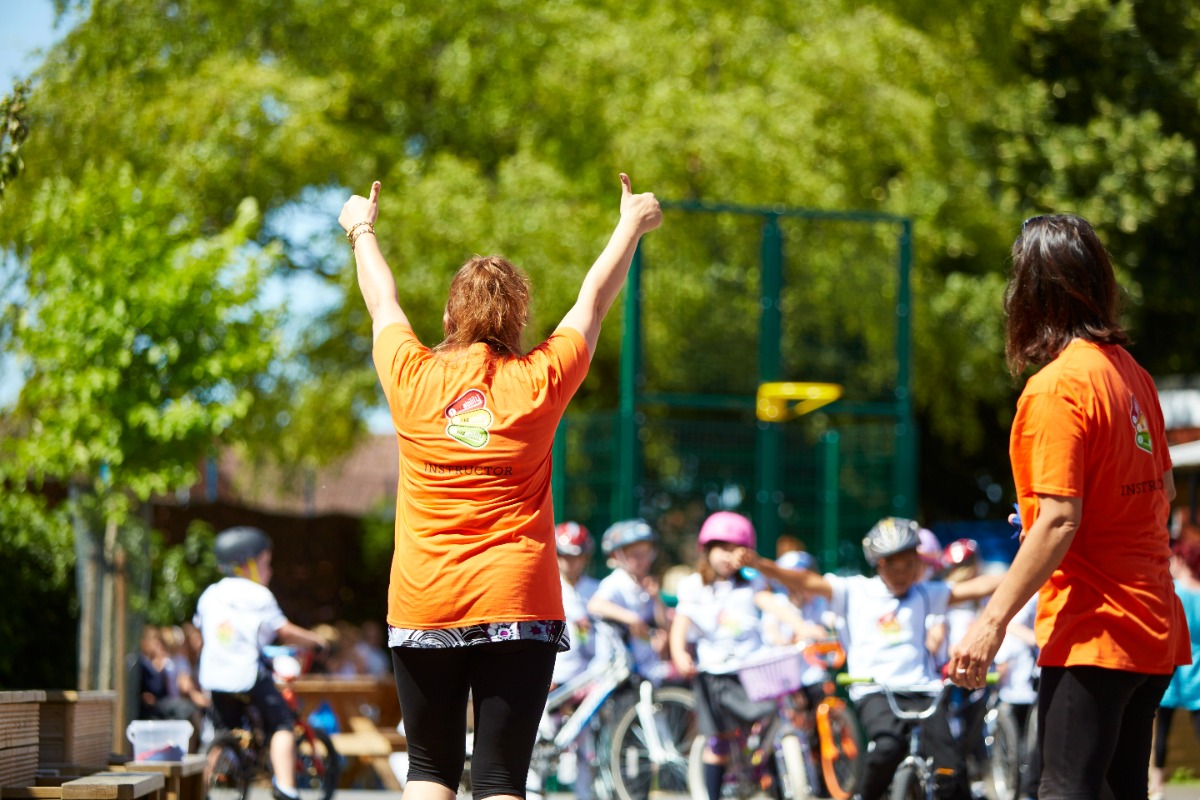Immersive cycle training allows people to experience what it’s like to cycle on the road without even going outside.
In early 2021, 17 Year 6 children and their parents visited a lab at Brunel University London. Each child cycled five ‘virtual routes’ in the setup shown here at the LEAP lab at Brunel University, as their parent looked on. The children’s job was to look around, including behind them, spot potential hazards, and provide responses to questions about things they saw, over a total of 52 minutes of virtual cycling.
Demonstrating their skills
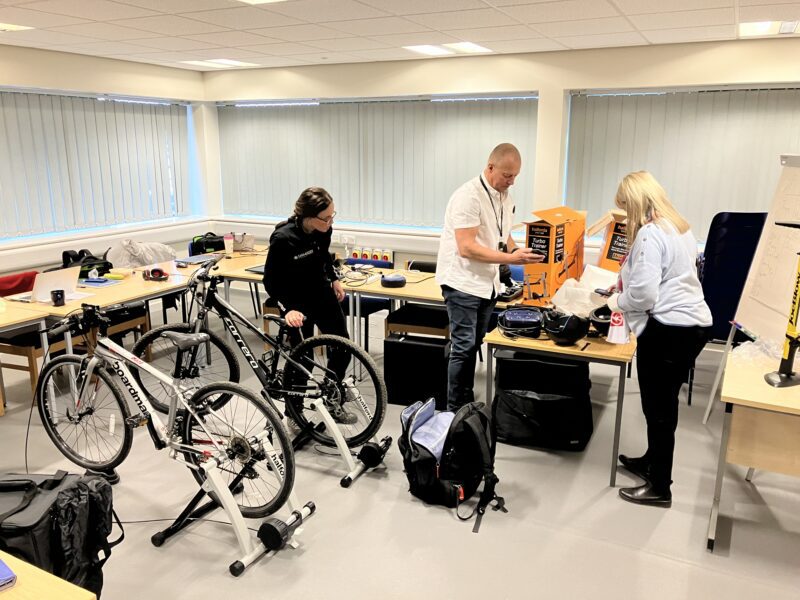

When compared with a group of 16 children who did not visit the lab, their performance when cycling on roads, as assessed by Bikeability instructors, was better in every one of the four ‘Key Skills’ laid out in the National Standard for Cycling. The four ‘Key Skills’ are:
- Observation: Being aware of surroundings and the actions of others
- Position: Choosing and maintaining the most appropriate place to ride
- Communication: Being able to communicate intentions clearly
- Priorities: Following priority rules in line with the Highway Code
The children who had taken part in the immersive cycle training engaged in more observation, communicated their intentions to other road users more effectively, positioned themselves in the road better, and showed greater awareness of which road users had priority. These were unique and exciting findings!
A virtual ride
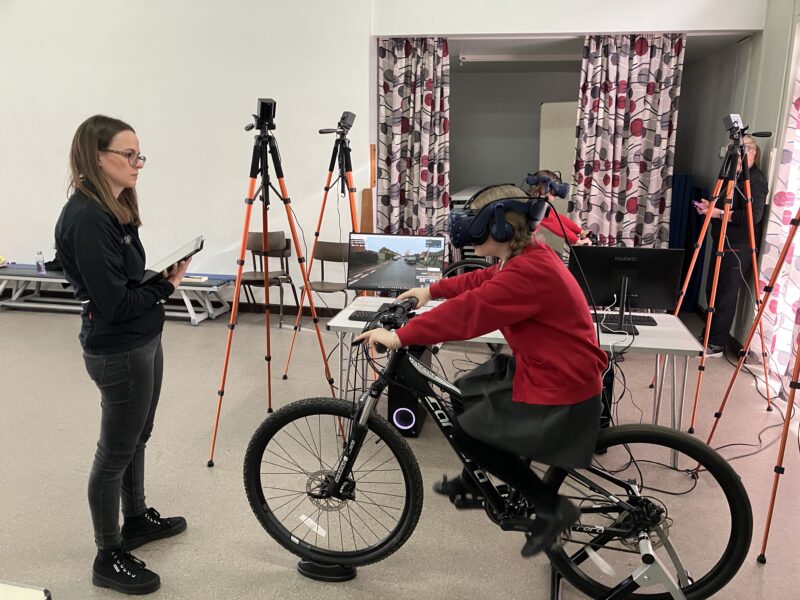

Fast-forward to 2022: we used a virtual reality headset to provide 15 minutes of immersive cycle training to a group of 11-14-year-olds in their school. 46 children took part, and their eye movements were tracked as they completed the virtual ride. Half the group were given instructions about where they should look – including over their shoulders, to check out vehicles approaching from the rear; the other half received no instructions.
Unsurprisingly, the children who received the instructions looked over their shoulders a lot more – and picked up reward points for doing so! However, both groups showed evidence that they learned, in just 15 minutes, how they could pick up reward points, for looking in the right places, at the right times. Reward sounds such as a cash register (‘cha-ching’!) for 10-pointers probably helped.
Importantly, the children showed more positive attitudes towards cycling and felt more confident about their ability to cycle on roads after they completed the immersive cycling. And half of them said they were interested in completing Bikeability Level 3 training – which is almost essential if you want to become a truly accomplished road cyclist!
Delivering more immersive cycle training
Over the past year or so, we have worked in partnership with Bikeability training providers in various parts of England, to see whether immersive cycle training can be delivered in their communities, again with children in Year 6 (10-11-year-olds). We have some fantastic data to show that a combination of immersive cycle training and on-road experience is a good way to make improvements in all the 4 Key Skills.
We have also found that the children’s performance in video-based situation awareness tests (a bit like the hazard perception test for driving, but for cyclists) is closely related to how well they performed in the on-road cycling assessments when assessed by Bikeability instructors, using our 4 Key Skills Rider Assessment. In effect, we may have a really useful training and assessment tool that could be an indicator of a rider’s ‘road readiness’! Another cool finding.
National Cycling Show
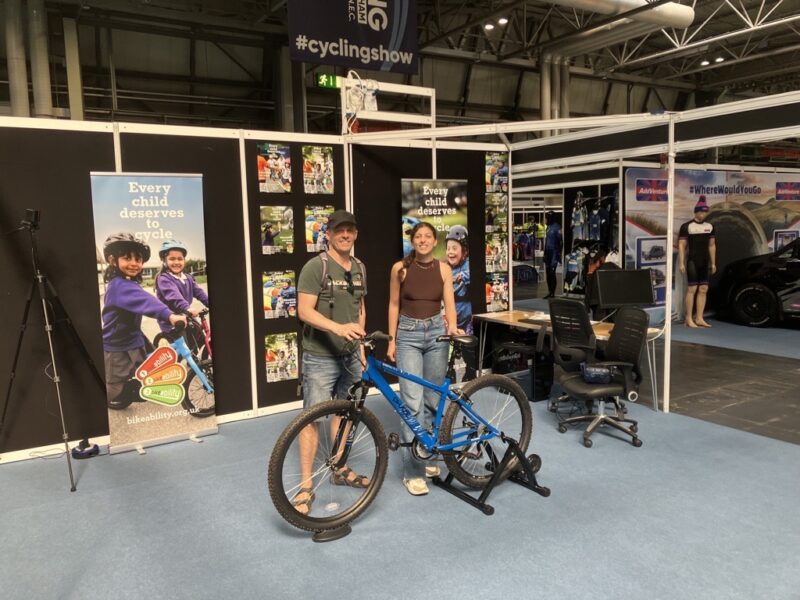
We also gave 155 children a quick go (about 4 mins each) of our Bikeability Trust Immersive Cycle Training at the National Cycling Show in 2023. They ranged in age from 5 to 15 years – and, together with their parents, they shared their thoughts on their experiences: 151 of them rated it a 7 or higher for Interestingness, on a scale of 0 (Not at all interesting) to 10 (Extremely interesting) – and 81 of them gave it a 10! In addition, 130 ranked it 7 or higher for immersivity, and 146 ranked it 7 or higher for usefulness!
We are now testing out different ways of using immersive cycle training to support Bikeability instructors and training providers nationwide, to deliver an outstanding cycle training experience. This includes using large-group immersive training in classrooms to increase riders’ road-readiness before they complete Bikeability Levels 2 or 3. We are doing so with £300K of funding from Active Travel England.
We could not have done all the above without the support of the Road Safety Trust.
Dr Dan Bishop is the Director of Research for the Bikeability Trust. He is also an applied psychology researcher at Brunel University who has published widely on attention, perception, and cognition. He also works as a practitioner psychologist and has helped hundreds of national- and international-level athletes achieve their ambitions.
